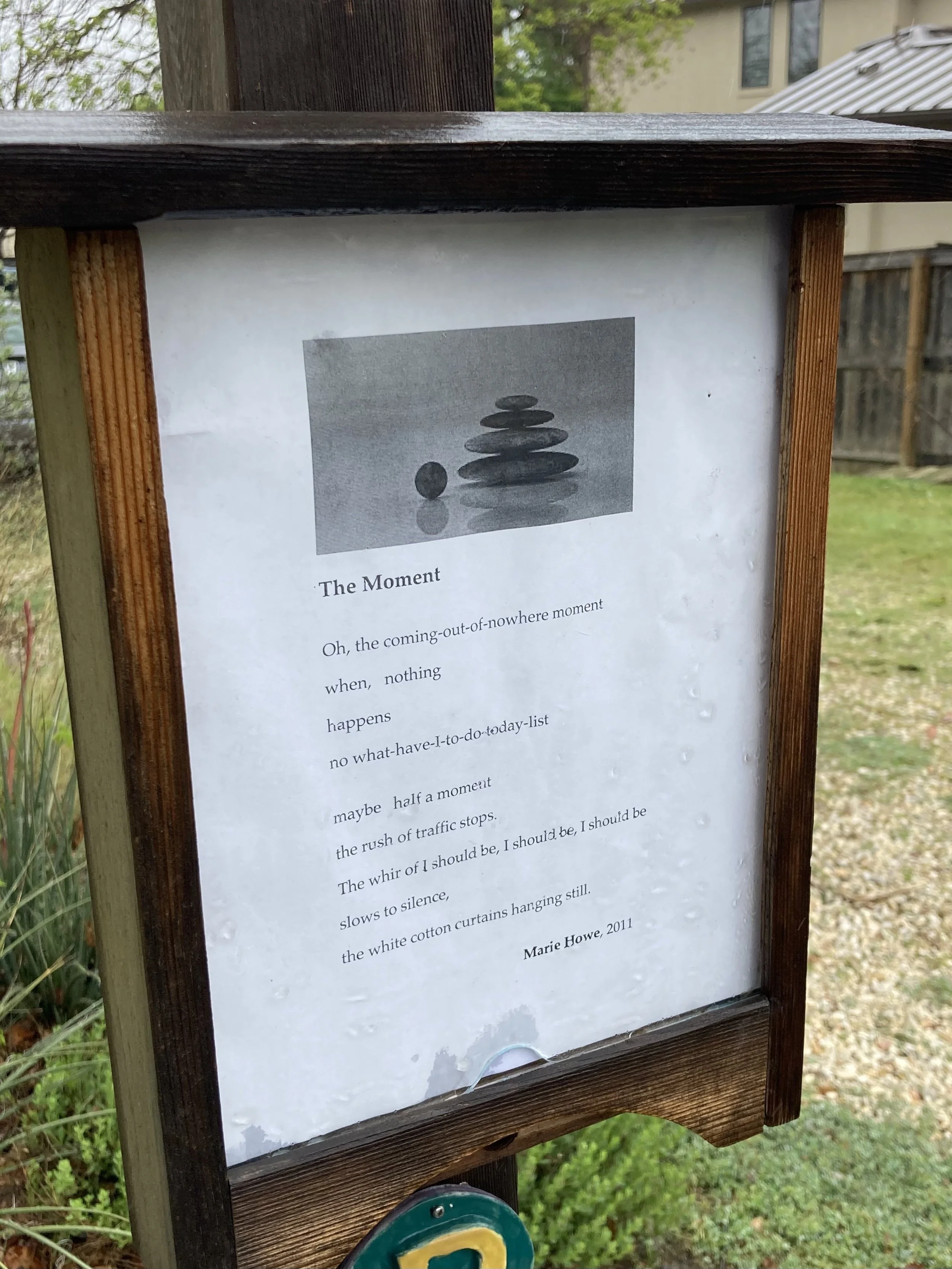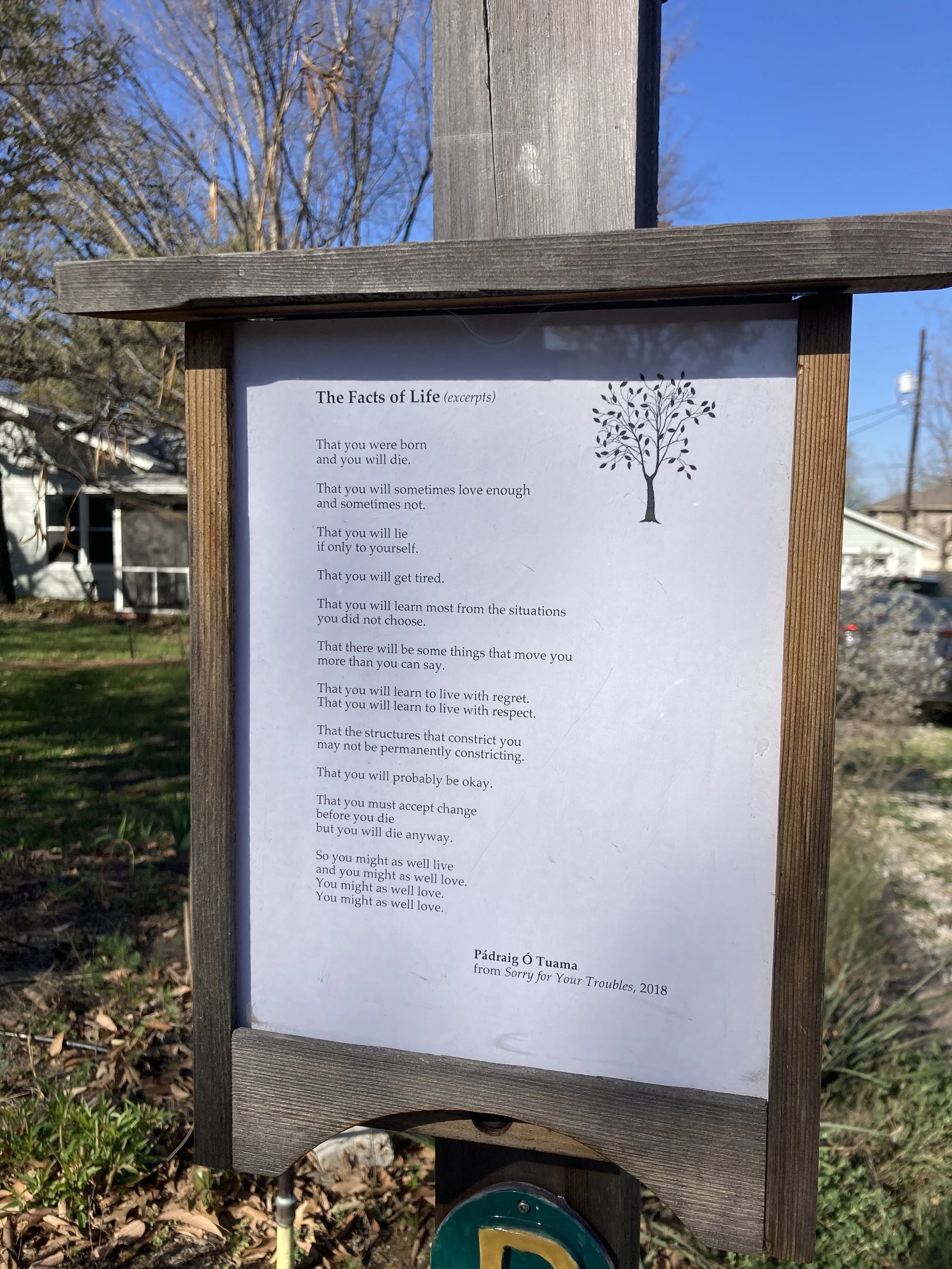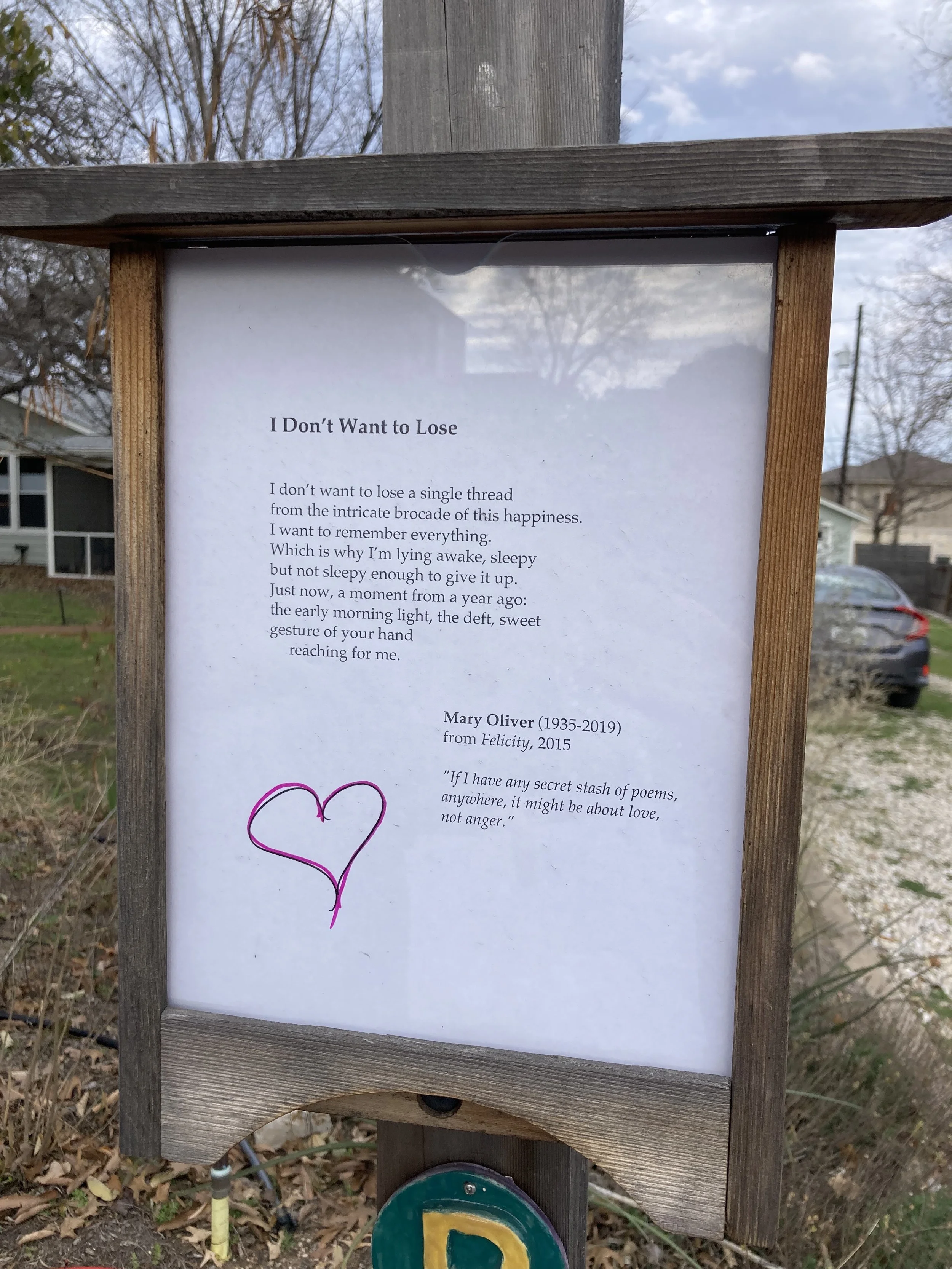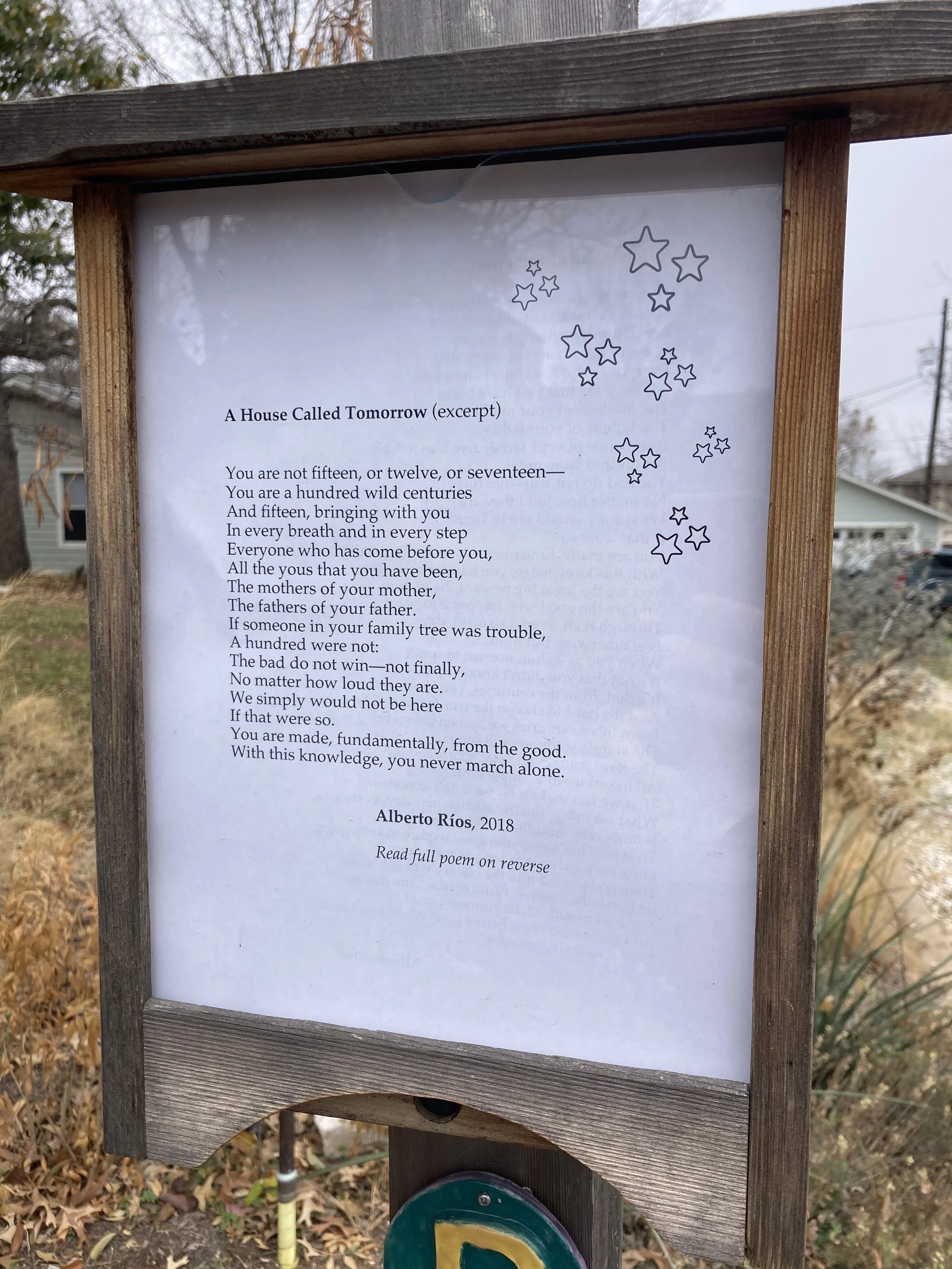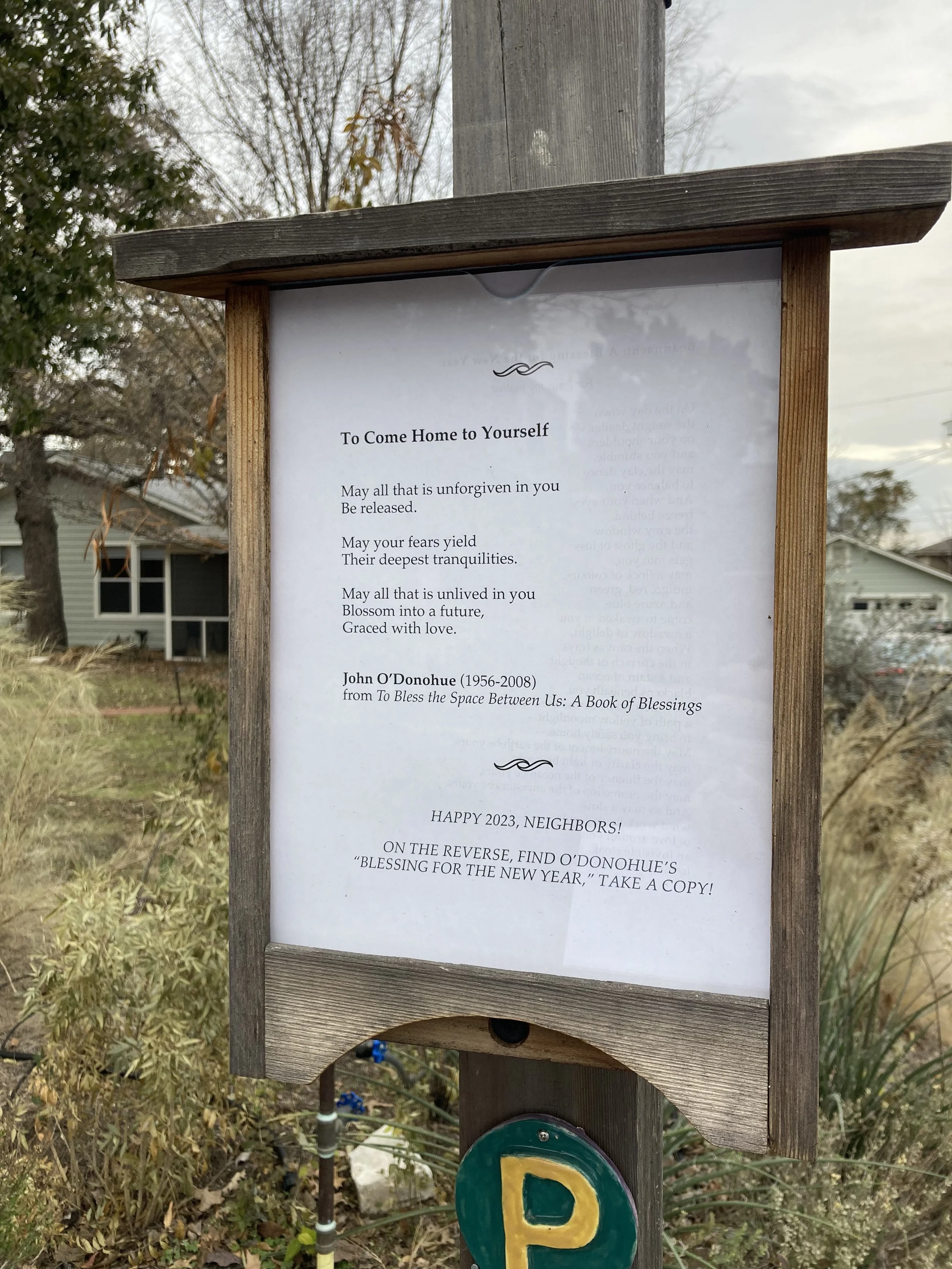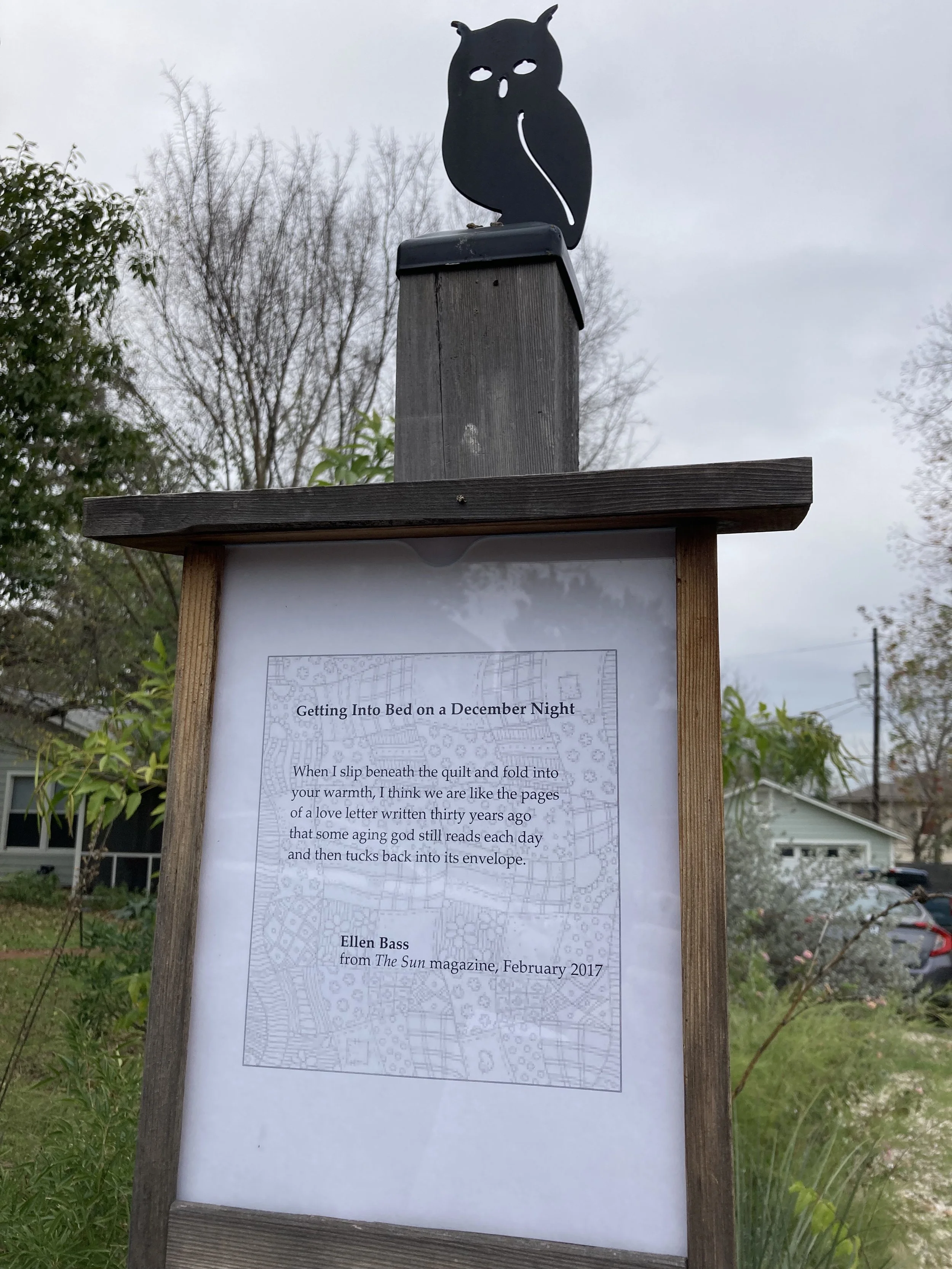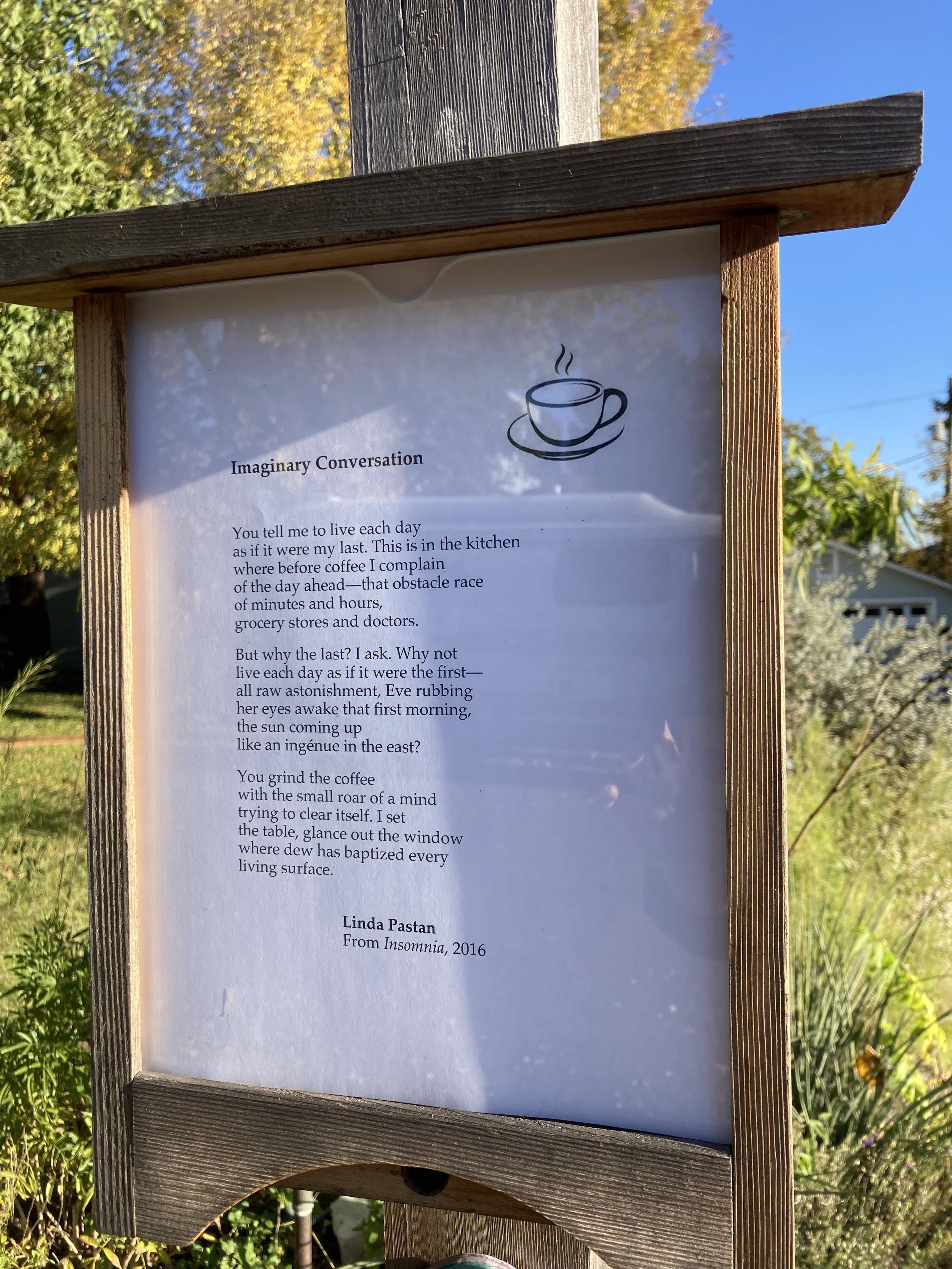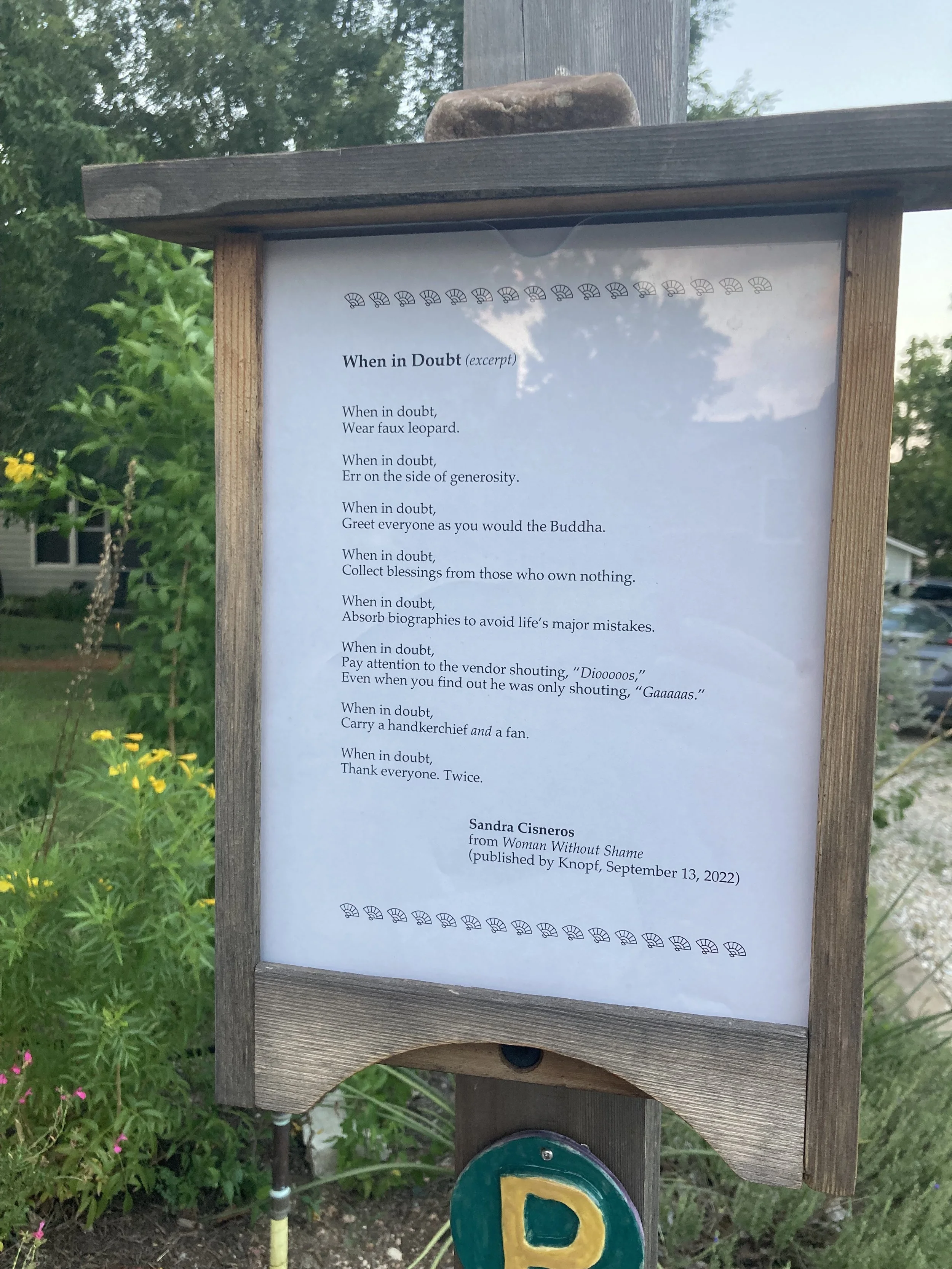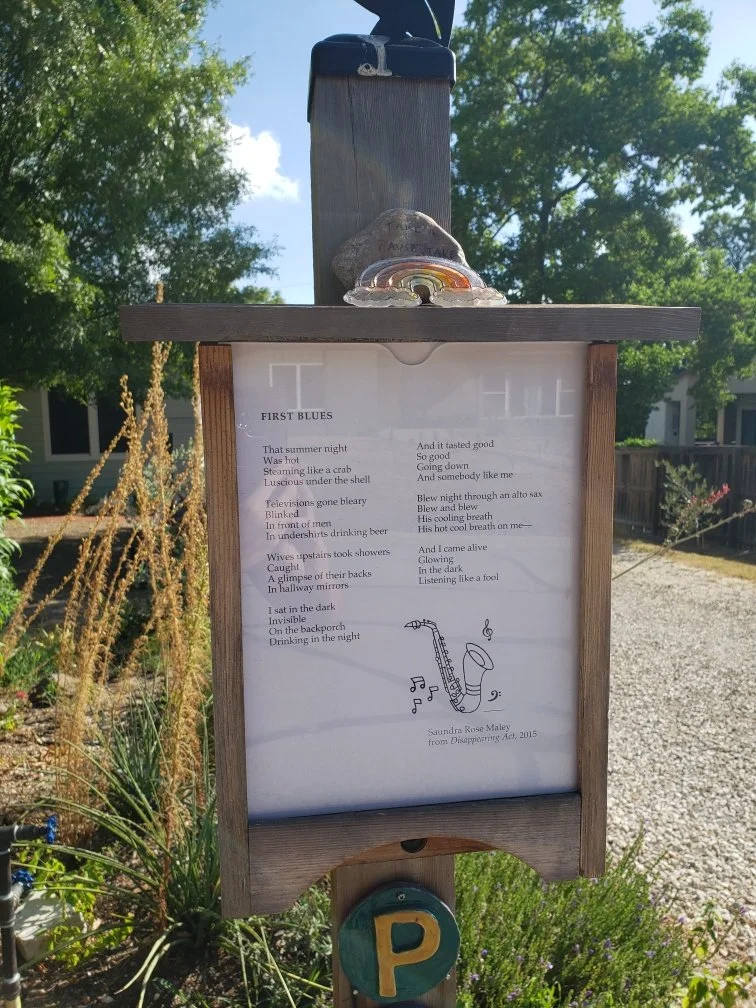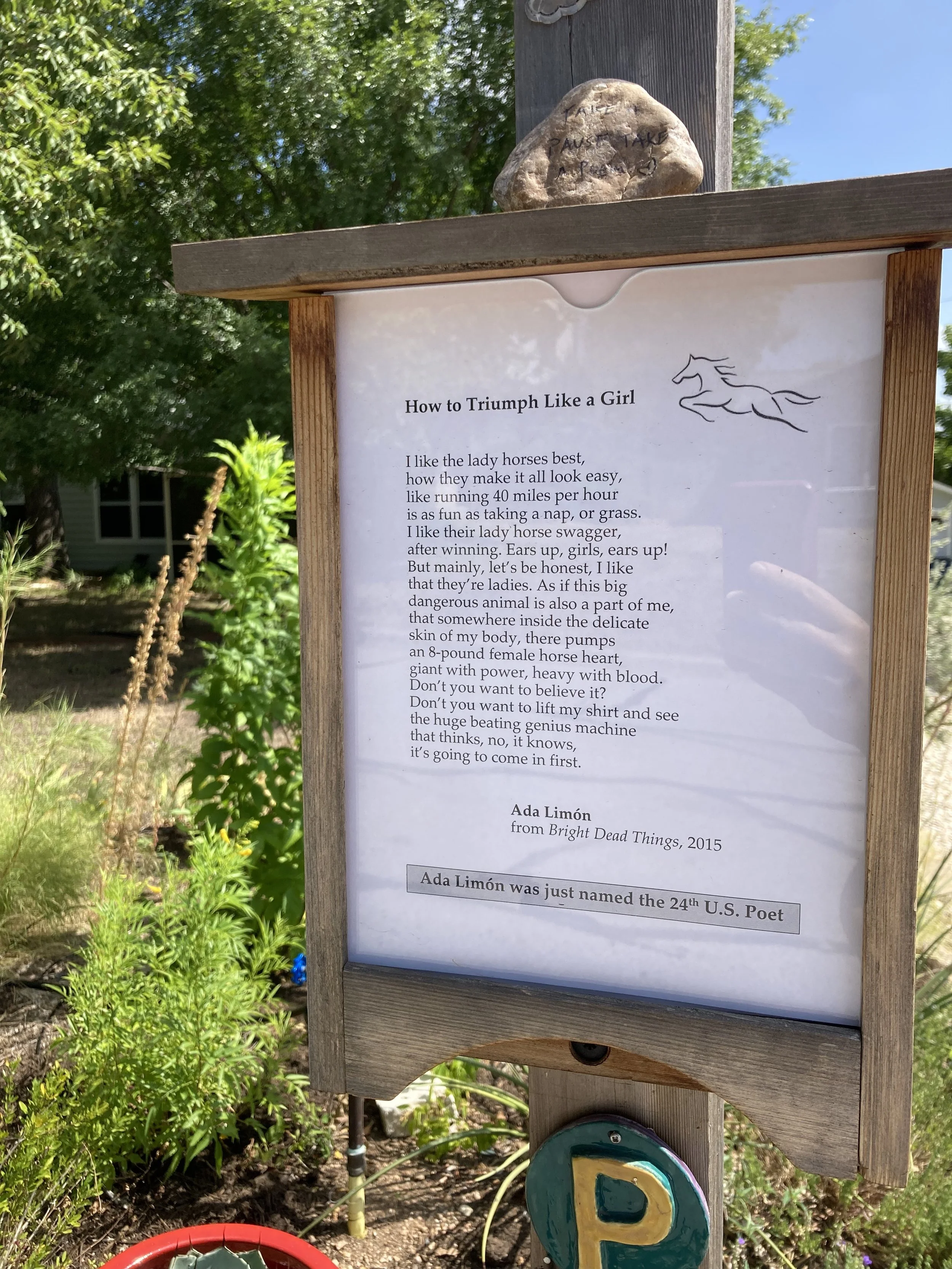Maybe your life has also felt filled to the brim—spring break and SXSW traffic and crowded airports and long lists of tasks awaiting your attention. My favorite Marie Howe poem, “What the Living Do,” is in many ways about the way riding this big messy overflow of life is itself what it means to be alive. But this week I came across that poem’s opposite, this small piece about exhaling into quiet, just for a second, and I thought some of us might need it too.
“The whir of I should be, I should be, I should be
slows to silence”
